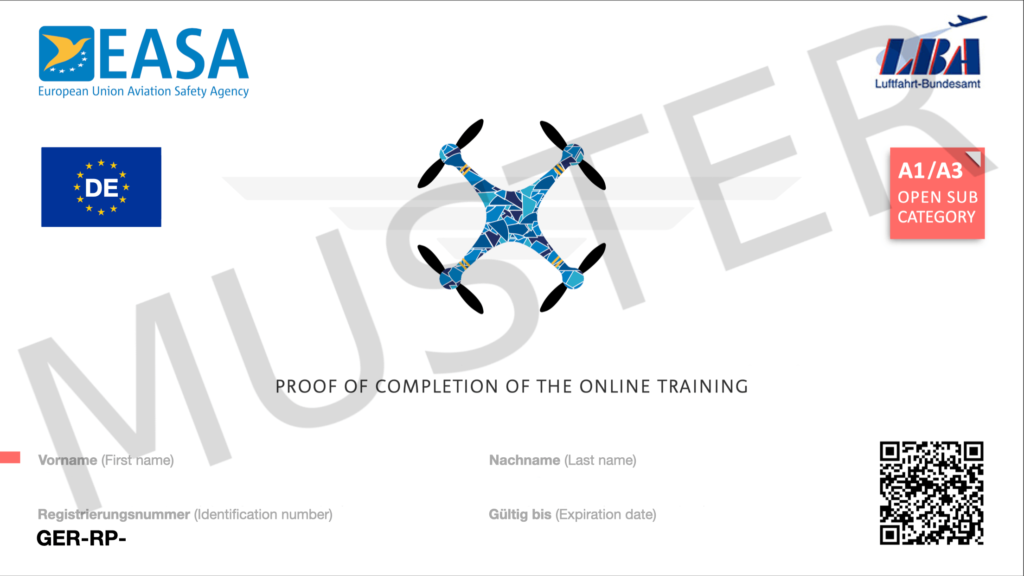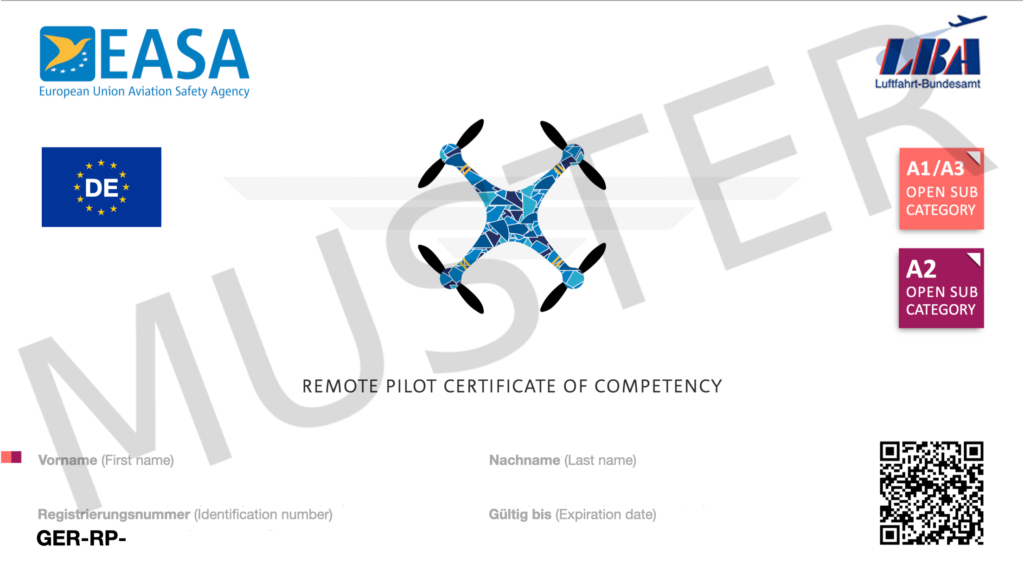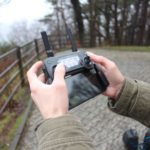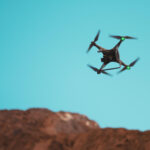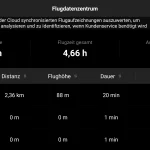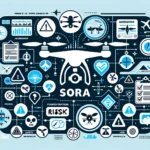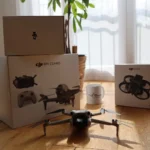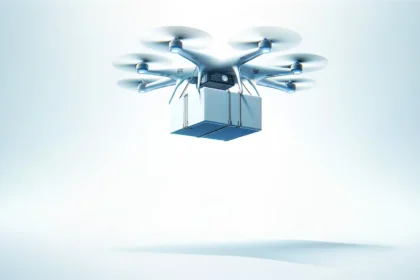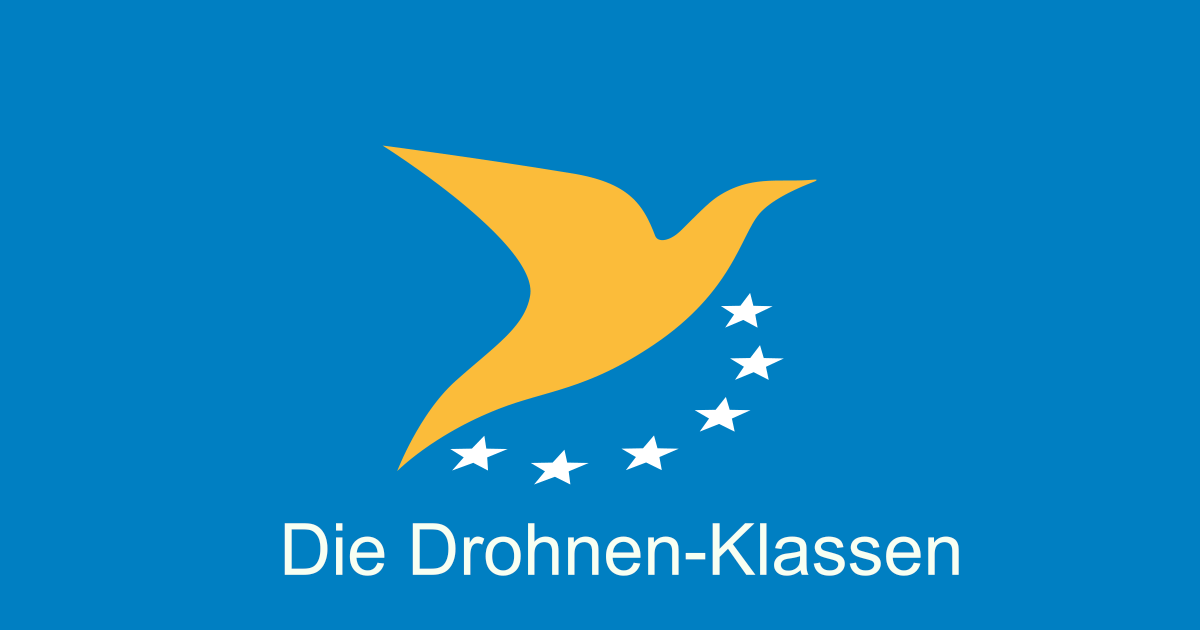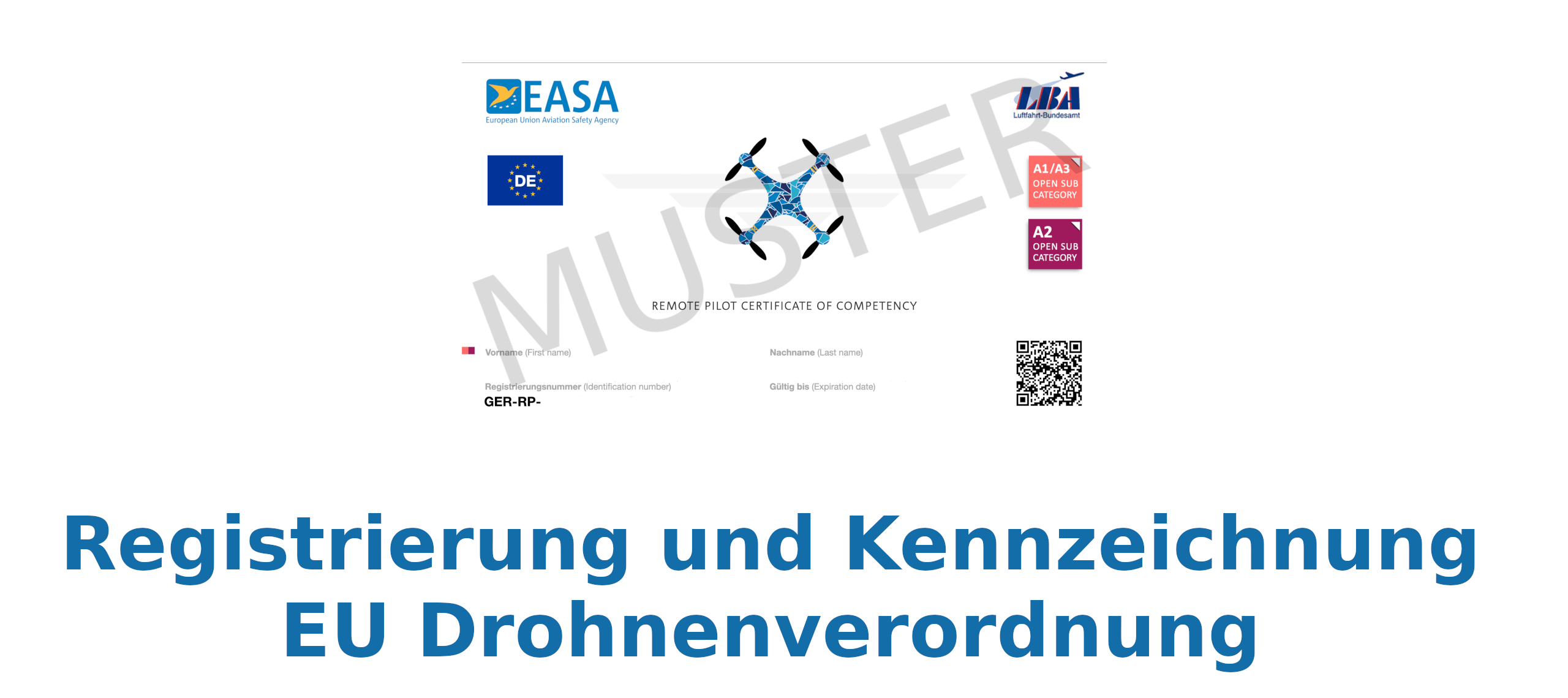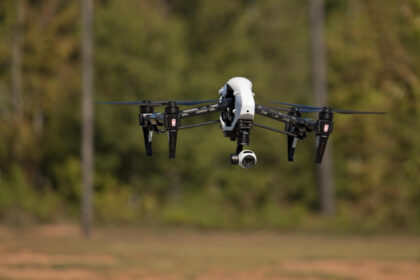Do you need a drone licence? In the following article, you will learn everything about the current regulations in Europe and how you can obtain a drone licence. Only with the right certificate is it possible to fly your drone legally in the EU.
The current EU drone regulation replaced the national drone regulations previously in force in many countries. The new regulation has set itself the goal of standardising the regulations and laws for the use of drones, which in some cases differ greatly within the EU.
Part of this standardisation is also the introduction of new EU drone licences. There are now two of these:
- EU certificate of competence
(colloquially referred to as the“small EU drone licence“) - EU Remote Pilot Certificate
(colloquially referred to as the“large EU drone licence“)
We will summarise and explain the differences, contents and costs of these two drone licences for the countries Germany and Austria in the following paragraphs.
In addition, we will clarify what happens to the previous certificates of knowledge that could be acquired before the EU Drone Regulation came into force.
Please note that all information is without guarantee. Changes can be made here at any time by the official bodies within the EU. Accordingly, we keep this article up to date to the best of our knowledge and provide the official sources for the information in this article.
The small drone licence – EU certificate of competence
The EU certificate of competence, or small EU drone licence, is intended to ensure that a drone pilot has the necessary basic knowledge in the operation of a drone and in the new EU drone regulation. This is to ensure that a drone owner has familiarised themselves with the most important circumstances.
To acquire the EU Certificate of Competence, all that is required is a simple online training course followed by an online test. This test consists of 40 multiple-choice questions, 75% of which must be answered correctly.
In Germany , the test can be taken on the central platform of the Luftfahrt Bundesamt(LBA). This link takes you directly to the online application (section Online Training for Remote Pilots). Before the actual test, a free trial test with reduced scope must be completed. After that, registration as a drone operator is necessary to be able to take the actual online test. The registration costs 20€, the test for the EU proof of competence 25€.
Drone pilots from Austria can acquire the EU certificate of competence after registering on AustroControl’s drone platform. The actual acquisition of the drone licence is free of charge in Austria. However, the necessary registration costs €31.20.
The EU certificate of competence is valid for 5 years. After that, it must be acquired again, which may also be possible through a simplified procedure.
The big drone licence – EU Remote Pilot Certificate
The EU Remote Pilot Certificate, i.e. the large EU drone licence, is much more comprehensive and less easy to obtain. The prerequisite for the EU Remote Pilot Certificate is the EU Certificate of Competence and the independent completion of a practical self-test. This can be carried out independently and must be confirmed in writing.
Prerequisites for the EU Long-distance Pilot Certificate
Germany
- Registration as a drone operator with the LBA
- Acquisition of the EU certificate of competence
- practical self-study
- Submission of the practical self-study declaration
- Passing the theory examination for the EU Remote Pilot Certificate at an approved body
Once the requirements have been met, you can take the necessary theoretical examination, which consists of 30 multiple-choice questions and must be taken at an LBA-approved centre. These are service providers who have been examined by the LBA and are authorised to conduct the test. It is to be assumed that many of the previously recognised bodies of the previous proof of knowledge will be found there. The test may also be conducted online, subject to compliance with certain measures. The costs for the training material and the test for the EU-Fernpiloten-Certificate can be set by each recognised body itself. However, an additional €30 will be charged to the LBA for the issue of the EU-Fernpiloten certificate.
If you pass the test (75% correct answers), you are entitled to apply for your EU-Fernpiloten-Certificate at the LBA.
The following topics are asked for in the EU-Fernpiloten-Certificate:
- Meteorology
- Flight performance
- Technical and operational mitigation of risks on the ground
Austria
- Registration as a drone operator with AustroControl
- Acquisition of the EU certificate of competence
- practical self-study and submission of the practical self-study declaration
- Registration and passing of the theory examination for the EU Remote Pilot Certificate at AustroControl
Also in Austria the exam for the EU-Fernpiloten-Certificate consists of 30 multiple-choice-questions of which 75% have to be answered correctly in order to pass the exam. Unlike in Germany, however, the exam is taken directly by AustroControl in a face-to-face meeting. The following page provides an overview of the next dates.
The preparation for the exam is done on your own. You have to take care of the necessary documents yourself, for which AustroControl provides corresponding learning objectives. For this, you can rely on self-study or take advantage of offers from various training service providers who prepare you for the exam. Such preparatory courses usually cost money.
The examination and issuing of the EU-Fernpiloten certificate at AustroControl itself costs 14.40€.
Period of validity of the EU-Fernpiloten-Certificate
The period of validity of the EU-Fernpiloten-Certificate is 5 years. After that, it must be obtained again, which may be possible through a simplified procedure.
When do I need an EU drone licence?
Now that the differences between the two drone licences should be clear, the question arises as to when you need which of the two licences.
This is also regulated quite precisely and depends on the type of drone (C-class, C0-C4) and area of use (use category). We have already explained the C classes and the areas of use in detail and simply in the article on the EU Drone Regulation.
For the EU drone licences, we focus on the operational category Open with its three sub-categories A1, A2 and A3. These will have the most relevance for the majority of drone pilots.
We divide the overview into existing drones, i.e. drones that have so far come onto the market without the C-class classification (as of November 2020, there are still no drones with C-class) and drones with the new Cx classification.
Existing drones (without classification/Cx label)
- under 250g and maximum speed <19m/s:
No EU drone licence is required. Neither EU certificate of competence nor EU remote pilot certificate. - under 500g:
No EU drone licence is required until 01.01.2023. Neither EU certificate of competence nor EU remote pilot certificate. As of 01.01.2023, the EU certificate of competence is mandatory. The drone may be operated in all subcategories of Open (A1,A2,A3). - under 2kg:
For operation in subcategory A2, the EU Remote Pilot Certificate is required.
For operation in subcategory A3 an EU certificate of competence is sufficient. - under 25kg:
An EU certificate of competence is sufficient, as drones in this weight category may only be operated in subcategory A3.
Drones with new classification (C0-C4)
- under 250g (class C0)
No EU drone licence is required. Neither EU certificate of competence nor EU remote pilot certificate. - under 900g (class C1)
EU certificate of competence required. - under 4kg (Class C2)
For operation in subcategory A2, the EU Remote Pilot Certificate is required.
For operation in subcategory A3 an EU certificate of competence is sufficient. - under 25kg (Class C3 and C4)
An EU certificate of competence is sufficient, as drones in this weight category may only be operated in subcategory A3.
Where can I get a drone licence?
This question has already been answered in the article above. In summary:
- The small drone licence, i.e. the EU certificate of competence, can be obtained …
- in Germany , after registering directly with the LBA.
- in Austria after registration directly with AustroControl.
- The large drone licence, i.e. the EU remote pilot certificate, is available …
- in Germany from an LBA-recognised body.
- in Austria directly from AustroControl.
Obligation to carry the drone pilot’s licence
It should be noted that both the EU Certificate of Competence and the EU Remote Pilot Certificate must be carried at all times. The LBA provides the following information:
The EU Certificate of Competence (“Remote Pilot Licence”) can be downloaded in PDF format and must be carried either on an electronic device (e.g. a mobile phone) or printed out in DIN-A4 format or credit card format (third-party providers) when operating a drone. In addition, you must carry a photo ID for identification. It is important that the QR code on the EU certificate of competence remains machine-readable. This is particularly important if the document is reduced in size, or otherwise adapted (e.g. by third-party providers). The QR code is a security feature.
LBACan I continue to use my existing proof of knowledge?
According to the previous German Drone Ordinance, there was a so-called proof of knowledge that was required for drones with a take-off mass of 2kg or more. What will happen to this proof of knowledge? Can it still be used?
Yes, the new EU drone regulation also provides for a gentle transition period. A distinction is made between existing drones, i.e. drones that were put on the market before 01.01.2024 and are not yet classified according to the new C-classification, self-built drones and drones with the new C-class.
Thus, the existing proof of knowledge can continue to be used until 01.01.2022 if it is a self-built drone or one with C-classification. The same applies to an existing drone that is to be flown in the A3 category. After that, an EU certificate of competence is required here.
In addition, the old certificate of proficiency can also be used until 31.12.2022 for inventory drones whose weight corresponds to 500g ≤ x < 2kg and which are flown at a distance of up to 50m from people. After that, the EU remote pilot certificate is required here.
Source: LBA
But be careful, the old certificate of competence is only valid within Germany during the “grace period”, not in the entire EU! Only the uniform EU certificate of competence and the EU remote pilot certificate are valid in the entire area of effect of the EU Drone Regulation.
Until 31.12.2021, every holder of a certificate of proficiency is entitled to convert it into an EU certificate of proficiency. However, the EU certificate of competence acquired at that time will only be valid for the remaining period of the certificate of competence.
Further articles
- All about the new EU Drone Regulation 2020/2021
- Registration and identification – eID – EU Drone Regulation
Sources:
- LBA help page on the drone licence
- AustroControl
- We would also like to take this opportunity to thank Jan Evers from CopterUni.de, who helped us answer questions about the EU drone licence.
FAQ about the drone licence
Whether or not a drone licence is required within the EU depends on the drone and the location where it is to be flown. We provide an overview with all the details in the article.
There are two different drone licences. The EU certificate of competence, also known as the “small drone licence” and the EU remote pilot certificate, also known as the “large drone licence”.
In Germany, you can get the small drone licence (EU certificate of competence) on the website of the LBA. In Austria, you can get it on the Austro Control website.
In Germany, you can apply for the large drone licence (EU Remote Pilot Certificate) at an officially approved testing centre. In Austria, you can also get this licence on the Austro Control website.
A drone licence acquired within the EU is valid in all member states. It does not have to be acquired again in every country.



